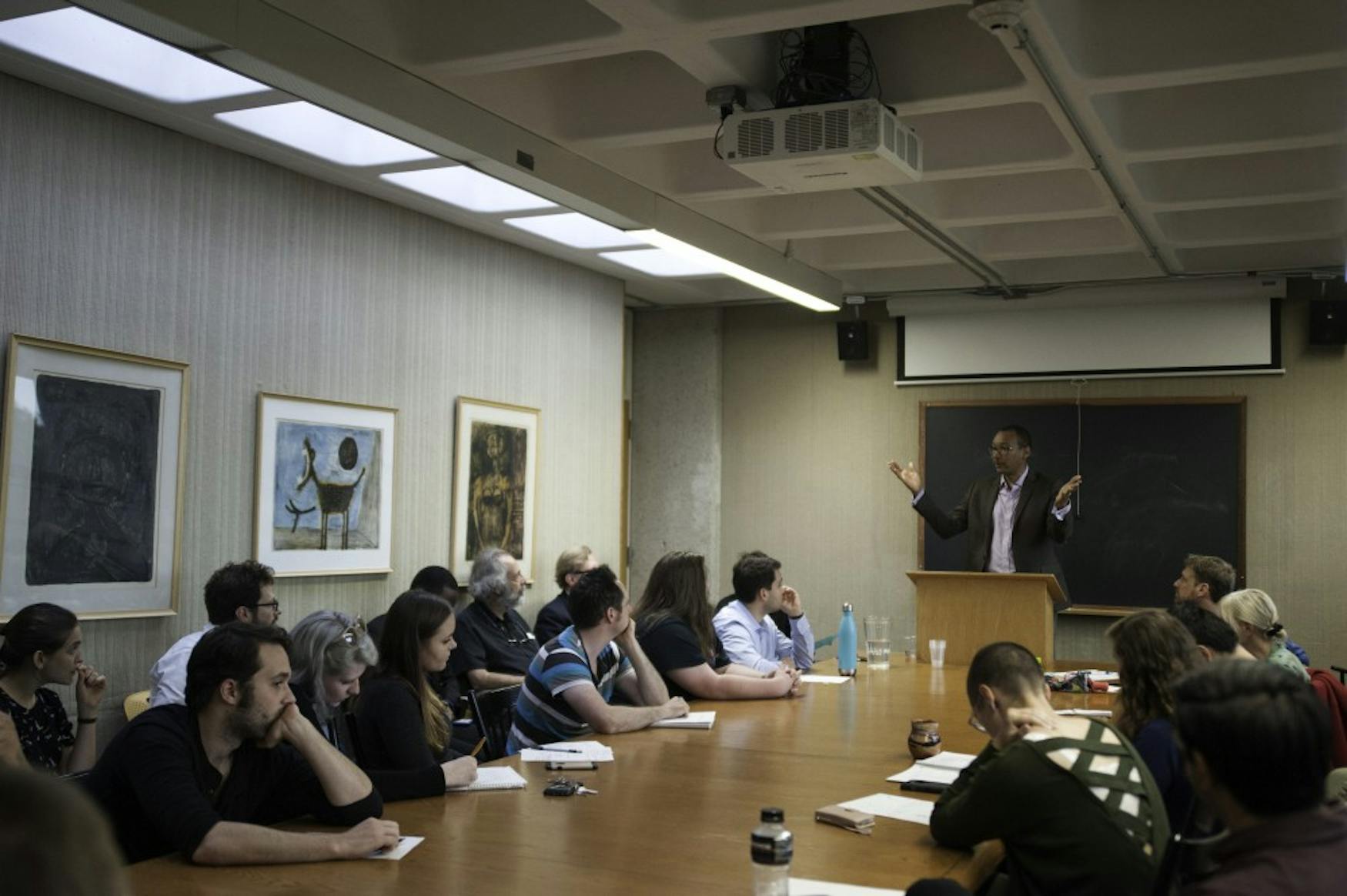Scholar debates philosophy of proposed prison abolition
The state of the nation’s prison systems has various benefits and drawbacks, and continuous discussions are needed to assess whether or not prisons serve as effective institutions, a Harvard scholar asserted in a symposium on Friday.
A professor of both Philosophy and African and African American Studies, Tommie Shelby has written on topics regarding prisons and punishment in his book “Dark Ghettos: Injustice, Dissent, and Reform.” In his lecture, which considered the effectiveness of prison abolition as an emerging social movement, he sought to bring the topic of “prison itself as a punishment” to the forefront of the discussion on incarceration.
A longstanding aspect of this debate revolves around assessing whether or not prisons, both public and private, are essential aspects of American society. While some argue that prisons must be abolished entirely to make way for a new, fair way to correct unlawful citizens, Shelby argued that prison reformation is more ideal, explaining that the sudden abolition of the prison system is undoubtedly rash, as it magnifies the repairable drawbacks while seemingly ignoring the benefits of effective incarceration.
When discussing incarceration and prison as a growing abolitionist movement, Shelby began by offering a critical examination of the ideals of the popular women’s rights activist and Brandeis alumna Angela Davis ’65, particularly her stance on prison abolition as a “morally required, political goal.” He continued by identifying Davis’ principal objections to prisons, how she denotes them as “a legacy of slavery” and also as the representation of an “alliance of state repression and the maximization of corporate profit,” formally known as the Prison Industrial Complex.
To differentiate his stance, Shelby explained that his objection to prison abolition is not dependant on a “reduction of socialism or an embrace of capitalism,” but rather because incarceration may have “legitimate uses,” and pushing for abolition of the prison system may distract society from resisting “related or background injustices,” such as discrimination based on race, class and gender.
Furthermore, he explained the notion that prison abolition may be too vindictive and argued that prison reform is the most beneficial to society. Prisons enable “the removal of the inalienable rights of citizens,” restricting prisoners from having open communication with other citizens at any time and thereby serving as a deterrent to unlawful action. As such, prisons protect society from “serious threats” by containing individuals who “stray from moral reason,” Shelby asserted.
This idea serves in contrast to Davis’ point of view, as she recognizes the inert drawback within the United States prison system. “The 13th amendment of the constitution formally abolished slavery for all United states citizens, except those who have convicted of a crime,” Shelby said of Davis’ theory. Davis challenges the 13th amendment, suggesting that a modern day abolitionist movement is necessary to counteract the institutionalized slavery enforced by prisons.
In contrast to her point, Shelby pointed out that prison inmates duly convicted of violent crimes are confined to prevent further harm to others but cannot be “used as collateral.” He added that prisoners are still human beings, criticizing Davis’ inmate-slave comparison.
Shelby continued by saying that, since inmates are still confined by prison grounds, prison labor can be considered a way to enable them to carry out their sentence. He also acknowledged that, although “prison laborers are denied the freedom to choose their occupations” and places of employment, they are able to maintain specific freedoms, such as freedom of religion and freedom from torture or unlawful punishment and therefore cannot be equated to slaves.
“What is needed under current social conditions is not the abolition of prisons, but the remedying of the myriad injustices that often lead to the imprisonment of the oppressed,” Shelby concluded.



Please note All comments are eligible for publication in The Justice.